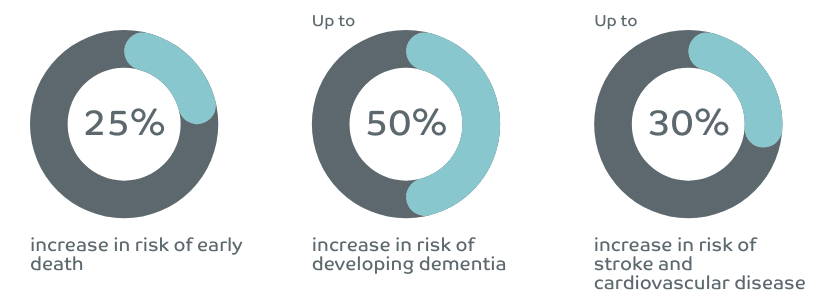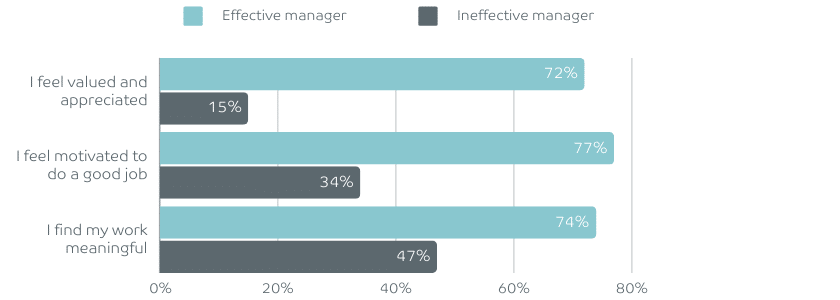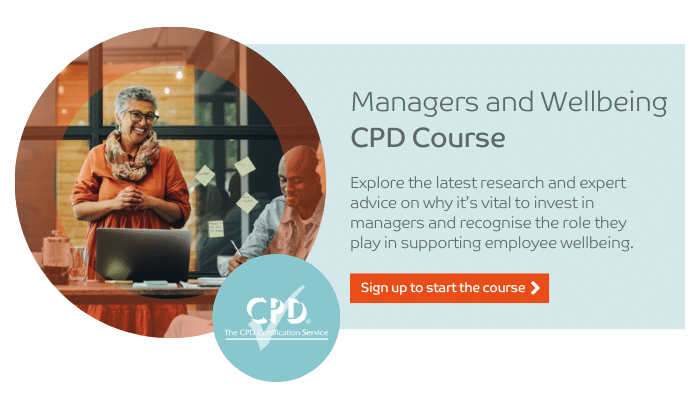Connecting with other people (social wellbeing) is one of the NHS five pillars of wellbeing. Finding connection in the workplace can support our mental health. Employees should look towards line managers, colleagues and mental health first aiders.
The New Economics Foundation and Co-op estimate that loneliness costs UK employers £2.5 billion a year. Finding a sense of belonging has remained important for our wellbeing, but the ways we connect are evolving. It’s important to recognise different preferences in communication styles and ways that workplaces can create a culture that supports mental health and wellbeing.
Third place support for connection
Third places exist between the environments of home (first place) and work (second place). This includes social spaces such as gyms, community centres and cafes. It’s no surprise that “banishing loneliness” has been listed as one of the biggest benefits to third place environments.
With NHS wait times at an all-time high, and many facing “hidden wait times”, people are now seeking third places to support their mental health and wellbeing whilst professional services are not presently available.
Places people are seeking connection:
- Barbers. There have been investments in mental health training for barbers to help them have meaningful conversations about wellbeing with customers.
- Community venues. A place for people to attend groups based on a shared interest, same age group or religion.
- Peer-led support groups. There is an increasing number of men seeking support from Andy’s Man Club, a male mental health support group that runs nationwide.
Loneliness in the workplace
Loneliness is now categorised as a global health concern. The grave health impacts of social isolation and loneliness are under-recognised, but include:

With 11% of UK employees always feeling lonely at work, it’s important for employers to take as many preventative measures for social isolation as possible to prevent loneliness and prioritise employee wellbeing. Understanding that different working styles exist allows employers to accommodate diverse needs of individual and team interactions.
Some employees thrive on in-person interactions, while others seek connection through alternative means. By acknowledging these differences, businesses can create a more inclusive and supportive work environment rather than a “one size fits all’ approach. It’s essential to identify where employees struggle to connect and proactively bridge these gaps.
The role of the manager
The role of the manager is evolving. A Chartered Management Institute (CMI) study found that 50% of UK workers who do not feel that their manager is effective are planning to change jobs in the next year. The rise in values-based recruitment correlates with the rise in values-based leadership. Finding shared core values is key to build trust, form stronger relationships and enhance workplace wellbeing.
Having an “effective manager” is crucial for employee retention, motivation and overall wellbeing:

The authoritative management style is outdated. According to the Leadership Traits Questionnaire, there has been a greater focus on emotional intelligence and a humanistic approach to leadership. Despite this, 82% of managers are considered “accidental managers” with no formal training, who lack the qualities to fulfil values-based leadership.
Further reading: Download our free Wellbeing Trends 2024 report.
Try our free CPD-accredited Managers and Wellbeing course
If you’re looking for a more in-depth guide on building connection in the workplace, our Managers and Wellbeing course covers the latest research, plus advice from our in-house experts to help you make the case for investing in manager and employee wellbeing, the importance of building supportive relationships and demonstrate its value in your business.
